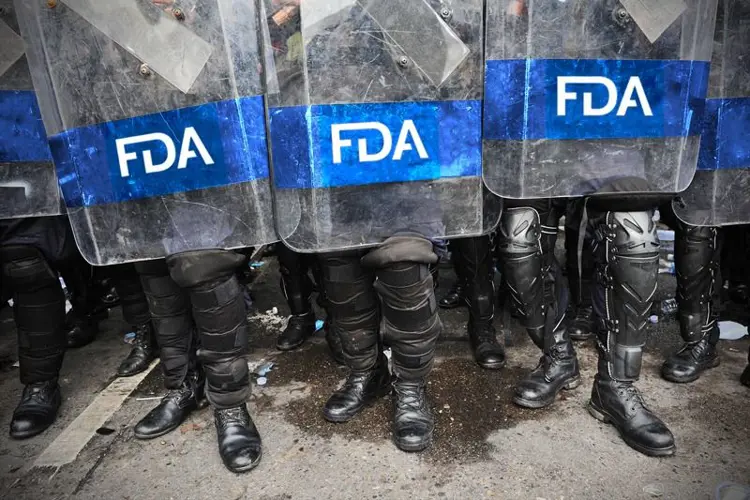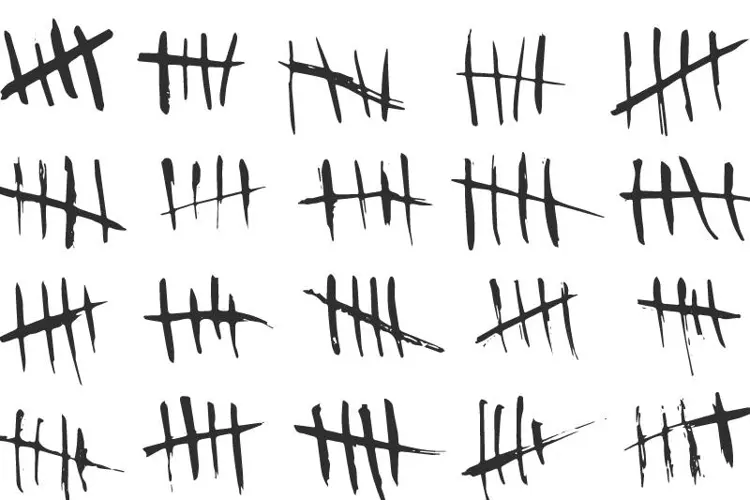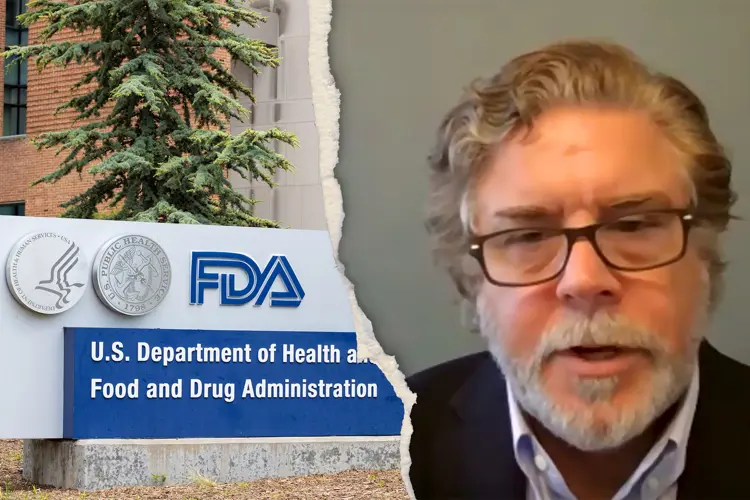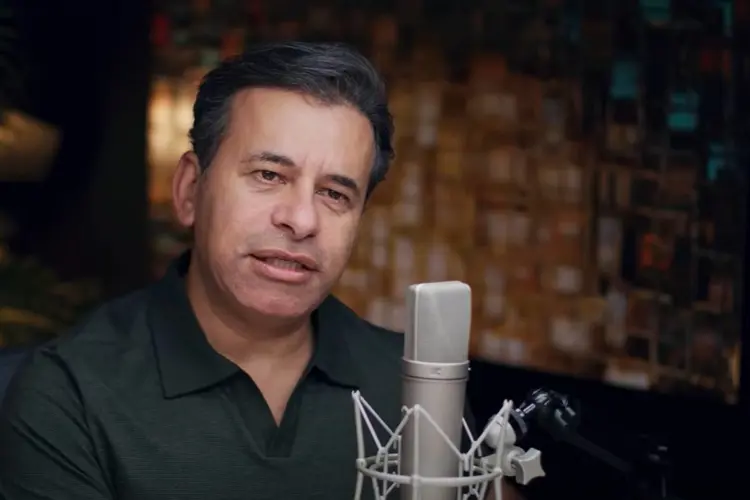After several months of investigation and analysis, the Reagan-Udall Foundation yesterday released its evaluation of the Food and Drug Administration’s Center for Tobacco Products (CTP). TheReagan-Udall report was requested by FDA Commissioner Robert Califf, himself a non-voting board member of the foundation.
The Reagan-Udall Foundation for the FDA is a non-profit organization, created by Congress to “support the mission of the FDA by identifying, funding, and supporting projects and programs that will help equip FDA staff with the highest caliber science and technology to enhance the safety and effectiveness of FDA-regulated projects.” The foundation is funded by the FDA and private donations, including gifts from many FDA-regulated food and pharmaceutical companies and their trade organizations.
Califf announced on July 19 that Reagan-Udall would assemble a group of experts to evaluate the tobacco and human foods programs. The chair of Reagan-Udall’s tobacco panel is a former FDA chief of staff, and three other members are veterans of FDA drug agencies. The fifth spent 30 years at another Department of Health and Human Services (HHS) agency, the Centers for Medicare and Medicaid Services.
The leadership of the affected FDA centers, Califf said, would “welcome the opportunity to work towards organizational excellence.” The announcement came less than three weeks after a new, Califf-appointed director—with no regulatory, legal or high-level management experience—took over the CTP, and soon after the agency’s bungled attempt to ban Juul products.
Reagan-Udall's conclusions and recommendations
Reagan-Udall’s CTP evaluation is focused on four areas: regulations and guidance, application review, compliance and enforcement, and communication with the public and other stakeholders. It does not address tobacco law or policy, and the FDA isn’t bound by the foundation’s recommendations.
Unlike the Reagan-Udall panel that issued a report on the FDA’s human foods programs—which suggested breaking the agency into two separate entities for regulating food and drugs—the tobacco panel had no radical recommendations, and was relatively gentle in its criticisms. The report blames most of the CTP’s inadequacies on outside forces like the unexpected volume of product applications, changes in FDA leadership, and litigation.
The report correctly identifies a number of CTP shortcomings, even though it often lets the agency off the hook when assigning blame. In fact, many of the group’s findings align with vaping advocates’ oft-voiced criticisms of the CTP. Here’s some of what Reagan-Udall found:
CTP has no defined strategy or long-term plan
The Reagan-Udall panel report recognizes the CTP operates in “a reactive mode,” constantly responding to crises, rather than planning and executing a thoughtful strategy.
“The Panel was unable to identify a current comprehensive plan that clearly articulates CTP’s priorities, direction for the future, and its near-term and longer-term goals and objectives,” says the report.
To an outside observer with some knowledge of the CTP’s history, the lack of a stated comprehensive plan and clear metrics for product authorization appears to be features not bugs—that is, it was the CTP’s choice to exist in a constant state of flux, and not an accident.
The agency purposely created vague and unnecessarily complicated regulatory standards (in its 2016 Deeming Rule) in order to dissuade thousands of small vape manufacturers from participating in a regulated marketplace. When small and medium-sized companies insisted on rolling the dice and submitting millions of premarket tobacco applications (PMTAs), the CTP panicked and changed the authorization standards—a year after applications had been submitted. If that is a “crisis,” it's one of the CTP's own making.
Here: https://t.co/JFM7IrckCP
My initial view: @reaganudall gets to the heart of it: FDA is making it up as it goes along and lacks a coherent regulatory strategy. It does not have a credible and consistent interpretation of the APPH public health standard or related trade-offs.
— Clive Bates (@Clive_Bates) December 19, 2022
It’s true that some responsibility for the CTP’s current situation is the fault of Congress and the Tobacco Control Act. The most deadly tobacco products the CTP regulates—cigarettes—were grandfathered onto the market by the Philip Morris-approved Act. The law then gave the FDA’s new tobacco center responsibility for authorizing new products based on the impossibly vague standard “appropriate for the protection of public health,” which also benefited the legacy tobacco industry.
But, beyond that, the CTP has failed its mission at every juncture. Sometimes the center’s failures were caused by incompetence, and sometimes the regulators acted because of outside influence, but mostly the CTP’s actions have been deliberate—even when they appear to be a chaotic cluster**ck.
“The lack of clarity about CTP’s direction, its priorities, and its near-term and longer-term goals and objectives, hinders CTP’s ability to effectively carry out its mission, establish efficient programs to accomplish its goals and objectives, and set appropriate metrics to assess outcomes,” says the Reagan-Udall report.
The panel recommends that the CTP “invest the time, now, with staff and public input, to create and implement a Strategic Plan that identifies the Center’s strategic objectives and plots an operational roadmap of the steps CTP will take over the next five years to achieve those objectives.”
CTP is not a responsible product regulator
Without chiding the CTP for its irresponsible anti-tobacco and -nicotine advocacy (as vaping advocates would), Reagan-Udall correctly notes that the agency has a mission to operate as a responsible product regulator, “with a duty to run efficiently, fairly, and transparently.”
“This responsibility to function as an effective product regulator should be captured in the Center’s mission, vision, and goals and carried out to the best of the Center’s ability,” says the report. The Reagan-Udall panel recommends that, as part of its written strategic plan, the CTP should first “Make clear that the Center’s principal focus is functioning as a product regulator.”
Properly regulating legal products, of course, is the opposite of what the CTP has done. The tobacco center has instead sought to create and maintain vague authorization standards that amount to “we’ll know it when we see it.” No other product regulator operates without a set of measurable, achievable standards. And no other regulator moves the goalposts when manufacturers appear close to meeting the mark.
“The Panel recognizes that developing regulations and product standards is time-consuming and resource-intensive, but the long-term benefits are significant,” says the report. “Legally binding parameters described in regulation establish basic principles that can be used in product application reviews and enforcement actions. This structure generates efficiency, eliminating the need for case-by-case adjudications of some issues.”
Reagan-Udall says the CTP “should develop a more clear and predictable framework for high-quality PMTA and MRTP application submission and reviews by,” among other suggestions, "prioritizing timely development and completion of policies and scientific standards necessary for high quality submissions,” and "simplifying, standardizing, documenting, and publicly disseminating review procedures.”
"In developing policy agenda, CTP should prioritize... key principles that will guide application review and enforcement determinations, and that could eliminate the need for detailed submissions and reviews, or case-by-case enforcement adjudications." -@reaganudall YES.
— Paul Blair (@gopaulblair) December 19, 2022
Proper foundational regulations and understandable product standards are what the independent vaping industry has begged for since 2014, when the FDA issued its first Deeming Rule draft. And such regulations were promised by the FDA more than once. But the agency repeatedly chose to kick that can down the road and instead regulate by the seat of its pants.
The panel also suggests adopting a Substantial Equivalence-style process for similar products, wherein a product receiving marketing authorization can serve as a predicate for other nearly identical products.
“CTP should consider what it can do under existing authorities to streamline the review and submission process for significant numbers of applications in this way, where there is scientific evidence to support such an approach,” says the report. “This may be particularly useful when the risk profile and product attributes of a certain type of product are well-understood, and only limited additional data would be needed for authorization. Subsequent products could then proceed through a less-burdensome submission pathway and CTP could better manage its workload.”
That is a logical suggestion that has been made for years by e-liquid manufacturers. But it only makes sense if the agency wants to streamline the authorization process. If the goal is, rather, to limit the availability of vaping products, the current system of forcing each manufacturer to reinvent the wheel on each product application is beneficial in meeting that FDA goal.
If the PMTA process is a game of chance that can only be won by repeatedly throwing millions of dollars into a black box, only the legacy tobacco companies will have a prayer of success, because only they have income from cigarette sales to fund the game. And that is exactly how it has played out, with Big Tobacco products dominating the short list of authorized vaping devices.
CTP confuses science and policy
The report notes that the CTP confuses science and policy and uses them interchangeably. “The Panel has observed that some issues before CTP are fundamental policy questions that must be informed by science but are not, themselves, scientific issues. Rather, they are policy issues with profound societal impacts,” they write.
The report uses as an example “how to weigh the public health benefits of the percentage of adults who use ENDS that will completely quit smoking combustible tobacco products against the potential public health harms that youth who use ENDS will acquire a lifelong addiction to nicotine or proceed to use combustible tobacco products.”
Reagan-Udall suggests the agency admit “areas of uncertainty” that limit its decision-making capacity. The report also suggests creating an “elevated CTP Office of Policy, incorporating the current Office of Regulations functions, with broader responsibility and authority to provide strategic policy leadership and direction across all Center functions.”
"The Panel was unable to identify a current comprehensive plan that clearly articulates CTP’s priorities, direction for the future, and its near-term and longer-term goals and objectives. Fundamental policy and scientific issues remain unanswered that the Center must address."
— Gregory Conley (@GregTHR) December 19, 2022
The report recommends that CTP “increase its use of the Tobacco Products Scientific Advisory Committee (TPSAC) to obtain expert input on scientific issues and policy development, including regulations, guidance, and data needs for effective product regulation.”
But when the CTP does use TPSAC, it merely adds another layer of deliberation to an already-congested process, because the CTP never accepts the committee’s recommendations without first debating them in house.
“CTP must do a better job of explaining how and why it weighs the evidence, explicitly quantifying the trade-offs it is willing to accept, and distinguishing policy judgments from scientific information and determinations,” says the report. The panel recommends that “CTP accelerate, intensify, and expand its efforts to establish regulatory policies and scientific standards for application review.”
CTP should enforce like a Drug War agency
The report suggests creating a master list of products allowed to be sold. That’s an unworkable idea if the CTP has to explain to retailers how its shifting enforcement discretion guidelines apply to each unreviewed product, or to products with marketing denial orders (MDOs) stayed by courts or by the agency itself. The alternative would be eliminating enforcement discretion and banning the sale of everything except the tiny list of authorized products. But that’s a pretty vanilla suggestion compared to the panel’s enforcement recommendations.
The foundation panel really seems to enjoy enforcement, and spends a great deal of time discussing it. The panel ultimately comes up with a truly awful recommendation: that the FDA should team up with other government agencies to create a Drug War-like inter-agency task force to enforce CTP product denials and policy at the retail and wholesale levels.
“FDA should ask the Administration to create an inter-agency task force to examine the current tobacco compliance and enforcement program with a goal of streamlining the program to promptly clear the market of illegal products and coordinating future efforts to police the market,” writes the panel.
Regarding PMTA decisions: "CTP must do a better job of explaining how and why it weighs the evidence, explicitly quantifying the trade-offs it is willing to accept, and distinguishing policy judgments from scientific information and determinations." -@reaganudall pic.twitter.com/mC5fgW6869
— Paul Blair (@gopaulblair) December 19, 2022
“The task force could include FDA, HHS, DOJ (including the Bureau of Alcohol, Tobacco, Firearms, and Explosives, the Department of Homeland Security (DHS), Customs and Border Protection, and the Department of the Treasury (the Alcohol and Tobacco Tax and Trade Bureau). States could also be invited to participate. The task force should consider federal legislative options that would streamline the processes for tobacco enforcement and increase the consequences for violations of the Act, which would have the effect of deterring future misconduct.”
Such a move only makes sense if there is already a variety of legal vaping products available in all the styles, strengths and flavors consumers want. Otherwise, it would shift what is currently a mostly harmless, above-ground gray market to a completely illicit black market, with all the problems associated with any illegal market.
This is a shockingly bad recommendation—especially while cigarettes are sold openly in every convenience store and gas station in the country.
Reagan-Udall misses the underlying problem
Reagan-Udall never confronts the fundamental problem of the CTP: it is a regulator that sees itself as a roadblock to the products it regulates. It doesn’t have a smooth application process or well-defined product standards because it doesn’t want to authorize more products.
The CTP has an unspoken goal of ending tobacco (and nicotine) use, but since that isn’t the center’s congressional mandate, it can’t admit that publicly. The Reagan-Udall report dances around that root issue, but never addresses it directly. It’s a problem that probably can’t be addressed, at least not in an FDA-commissioned report.
In his press release thanking the Reagan-Udall Foundation for its efforts, FDA Commissioner Califf says he and CTP Director King will study the report to “determine next steps and will provide an update by early February.”
Undoubtedly Califf will be enthusiastic about beefing up the agency’s enforcement activities. He may be less thrilled to see in print that most people view his tobacco center as unfocused, incompetent and confused. But the CTP’s incompetence ultimately accomplishes Califf’s goal: preventing Americans from easily accessing low-risk nicotine products.
The Freemax REXA PRO and REXA SMART are highly advanced pod vapes, offering seemingly endless features, beautiful touchscreens, and new DUOMAX pods.
The OXVA XLIM Pro 2 DNA is powered by a custom-made Evolv DNA chipset, offering a Replay function and dry hit protection. Read our review to find out more.
The SKE Bar is a 2 mL replaceable pod vape with a 500 mAh battery, a 1.2-ohm mesh coil, and 35 flavors to choose from in 2% nicotine.
Because of declining cigarette sales, state governments in the U.S. and countries around the world are looking to vapor products as a new source of tax revenue.
The legal age to buy e-cigarettes and other vaping products varies around the world. The United States recently changed the legal minimum sales age to 21.
A list of vaping product flavor bans and online sales bans in the United States, and sales and possession bans in other countries.



















